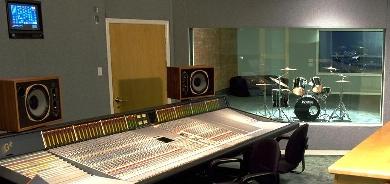

Here are a few ideas to help your first professional recording sessions go smoothly, quickly, and as inexpensively as possible:
1. Take a cooler loaded with plenty of bottled water. Singers may find that the low-humidity atmosphere of many control rooms dries out their throats. There's a debate going on as to whether the water should be room temperature or cool. See what works for you.
2. Avoid alcohol. Despite the joy of what you hear tonight, you may not like the playbacks tomorrow.
3. As much as possible, write, arrange, and rehearse all of your material, including the overdub parts, BEFORE you get into the studio. Don't wait for the inspiration to come with the session clock running. Talk about stress...
4. A recording is never finished: The producer, artist, deadline, or budget simply brings the project to an end. Don't allow an incessant desire to tweak to cause your recording hours, and thus cost, to sneak up. Make the decision yourself.
5. Encourage, Encourage, Encourage. When your bandmates are alone in the tank for overdubs, their egos are sitting right out on their sleeves. You'll get the best performances and productivity from them with encouragment.
6. Avoid being caught in the snare of "progress". It's possible to get fixated on getting things "perfect" and, as a resut, get caught on the backside of a phenomenon called the "performance curve". Be aware that your takes usually begin with energy and spontaneity and end with cold precision. Somewhere in-between is often the BEST take. Don't find yourself on the backside of the curve, on a quest for precision but desperately trying to recover spontaneity.
7. Leave friends and spouses behind during your first sessions in order to minimize embarrassment from mistakes and complications from too many people and opinions. Also remember that an audio control room is treated to give a quiet, wonderful istening environment. Extra people destroy that, by making unnecessary noise that makes it hard for those involved in the recording to actually hear and concentrate on what is going on.
8. I know, you've heard it before: "Too many chefs spoil the broth." But when it is time for mixing, dismiss the band. "Okay, everyone go home and catch up on your sleep! If you've got any suggestions, write 'em up and turn 'em in!" At the most, you'll need the producer, the engineer, and one representative of the band to get a good mix. With everyone there you can waste gobs of time and hassle on little loudness wars. While it is natural and healthy for each musician to be passionate and want to push his own instrument higher, a mix is a compromise.
9. Try to book your sessions so that there is time (like a week or two) between the recording sessions and the mixing sessions. A little distance can give you great perspective as you head into the mixes.
10. At mix time, bring a few familiar, excellent CDs to play while you are setting up so that you can become familiar with the sound of the studio's monitors.
11. Vocalists: In sinus/throat emergencies, use a product called "Alkalol" as a gargle and rinse to clear mucus from your throat. Alkalol is available over the counter at pharmacies and is a product of the Alkalol Company, Taunton, MA. The product is typically diluted 50/50 with hot water to yield a warm product. Another solution is warm water with salt added.
12. Guitarists: Believe it or not, fingernails and even calluses can be repaired with Superglue. Fingerstyle players: Nail problems? Click HERE for info on a nail remedy.
13. Amplifiers, speaker systems, drums, and the rest of the gear should be checked and adjusted to remove rattles, glitches, and fizz *BEFORE* you go into the studio.
14. Don't monitor so loudly in the headphones or control room that it affects your perception of the mixes. For more info, click here:
Monitor Levels
15. Do I record "dry" or "with effects"? Check out the answers here: Effects
16. It should go without saying, but... Take extra strings, picks, cords, drumsticks, snare heads, etc. Nothing is more frustrating than a stop-down with the studio clock running.
17. Some rules are made to be broken. As you get more experience in the studio, break 'em!
18. Take a camera and shoot more pictures than you think you need. Make everyone copies and don't forget the engineer. You will want to remember this time!
19. Want to create your own professional pop screens? CLICK HERE
20. If the studio has its own drum kit, using it will save lots of time as the engineers will probably know how to get the best out of it.
Here's an excellent book for anyone considering undertaking a recording project:
"How to Make & Sell Your Own Recording : The Complete Guide to Independent Recording"
by Diane Sward Rapaport, preface by Loreena McKennitt
5th edition (July 1999); Jerome Headlands Press
Paperback - 256 pages
The book goes in and out of print. You can usually find used copies on the internet.